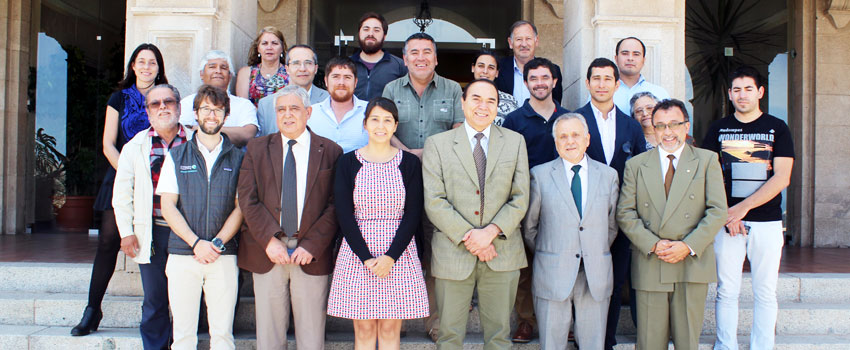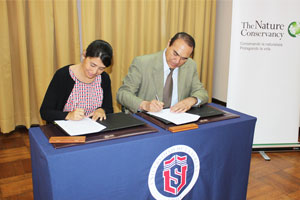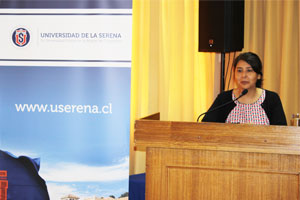- News
ULS and NGO The Nature Conservancy sign collaboration agreement for the conservation of biodiversity

TNC is an organization established for the purposes of conserving plants, animals and natural communities that represent the diversity of life on Earth, protecting the lands and waters that they all need to survive.
An important collaboration agreement was signed by the University of La Serena and the NGO The Nature Conservancy (TNC), an international non-profit organization dedicated to the conservation of the lands and waters on which life depends.
The agreement signed by the Rector of the ULS, Dr. Nibaldo Avilés, and the TNC conservation manager, Maryann Ramírez, considers site conservation planning, the protection of priority areas and natural resources for conservation, the reduction of threats to biodiversity and conservation actions based on local institutions that contribute to mitigating threats to biodiversity in the long term.
 It is also contemplated to promote conservation science, including applied research activities, ecological assessments, planning and monitoring of natural resources and biodiversity, documentation and dissemination of lessons learned in conservation management.
It is also contemplated to promote conservation science, including applied research activities, ecological assessments, planning and monitoring of natural resources and biodiversity, documentation and dissemination of lessons learned in conservation management.
Another purpose of the agreement is to support the identification of potential conservation objects in the Limarí basin and their relationship with the water market.
For Rector Avilés, this agreement “reflects recognition of the work that the University is doing in terms of conservation, and leaves us with a broader commitment, with objectives that we hope to meet. We are grateful for the opportunity given to us as a regional and state university, and we are eager to continue working to benefit the conservation of our country's natural heritage."
The conservation manager of TNC, Maryann Ramírez, meanwhile, said that for the NGO born in the United States and which has a presence in various countries, it is an honor “to work with the University of La Serena. More than five years ago we began planning how to carry out conservation in our country. And within those recommendations, our goal was to get to work in this area, specifically in Limarí”, highlighting that thanks to the collaboration with the PROMMRA Laboratory of the university, they began “to make that work a reality.”
 The Dean (S) of the Faculty of Sciences, Dr. Héctor Reyes, expressed that this agreement represents “one of the mandates that we have as a public and regional university, “which is to become part of the solutions to the problems inherent to our development, and clearly natural resources and their conservation are a fundamental part. That TNC has chosen the territory of the Coquimbo Region to develop its activities highlights the importance and richness that this arid territory represents, and not only from the point of view of its natural components, but also human and social ones.”
The Dean (S) of the Faculty of Sciences, Dr. Héctor Reyes, expressed that this agreement represents “one of the mandates that we have as a public and regional university, “which is to become part of the solutions to the problems inherent to our development, and clearly natural resources and their conservation are a fundamental part. That TNC has chosen the territory of the Coquimbo Region to develop its activities highlights the importance and richness that this arid territory represents, and not only from the point of view of its natural components, but also human and social ones.”
The academic added that at the University this is reflected “in many of the areas of university work, for example, in undergraduate and postgraduate teaching, with training programs that effectively include the relationships and links between environment and society; and in research, with powerful and highly relevant and productive lines of work.”
In addition, Dr. Reyes valued the work carried out by Dr. Pablo Álvarez and the PROMMRA Laboratory team, “with whom TNC had its first and fruitful approaches, which over time laid the foundations for this cooperative relationship that is formalized with this signing of the agreement.”
Authorities, directors, academics and officials from the state campus, and representatives of the TNC were present at the activity carried out at the ULS Headquarters.
